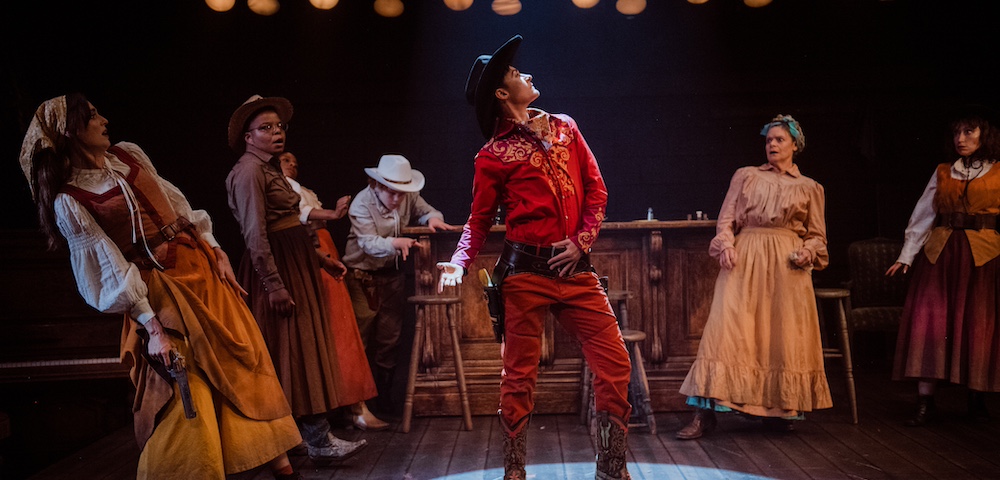
GLBT life in Mexican border towns
While Mexican border towns are dynamic and cross-cultural, they are also often the scene of violence
against marginalised communities.
Dr Vek Lewis, lecturer in Latin American Studies at Sydney University, returns to Mexico every year to observe the situation for LGBT people. Earlier this year he travelled to Tijuana, Mexicali and Tecate.
Lewis believes the degree of acceptance of homosexuality in Tijuana is directly linked to social status.
“It depends on your class position and your degree of integration in the formal labour force. The night life in Tijuana for gays is diverse and accessible. Tijuana is known for its tolerance. Culturally if you are seen as contributing to society and hard-working, this translates to a conditional acceptance of difference,” Lewis said.
“However, if you find yourself outside the main networks of labour, and visibly on the street, as is the case for many sex workers, people of distinct ethnic groups from other states, and some gay and trans people, harassment by police and marginalisation by society can be pronounced.”
While harassment can consist of everything from extortion to sexual violence, Lewis said there are individuals prepared to defend their rights in Tijuana. Historically such people have had to seek asylum in the US, but things are changing.
“In recent years transsexuals, in cooperation with human rights defenders, have successfully organised to intervene and prevent harassment. They have met with the mayor,” he said.
“Tijuana has a prominent gay, lesbian and trans community, which helps to put the rights of sexual minorities on the map.”
“This is in contrast to other towns such as Tecate or Mexicali. Neither has much of a public presence or community. In 2002 in Tecate, under the governorship of a conservative politician, an anti-cross-dressing law was brought in, which was in contradiction to federal law. This was viewed as anachronistic by people in Tijuana and other parts of Mexico.”
Lewis believes the anti-cross-dressing law demonstrates the broader insecurities of towns in the region, which hope to maintain public order, the safety of the family unit and maintenance of middle-class lifestyles.
“Laws like these and the police persecution act as a pressure valve release, and aren’t necessarily strictly speaking about machismo or homophobia, which is how Mexican society is often stereotyped,” he said.
A solution to the harassment may lie with the involvement of broader society in planning and implementing social programs in the areas of health, labour and law reform.
“Civil groups ought to have a role in police reform and education campaigns to sensitise the police around diversity issues. It should be undertaken at an official level, in consultation with minority groups affected,” Lewis said.
In line with Lewis’ observations, filmmakers have produced documentaries exploring the challenges faced by Latino LGBT people in the Americas — some will be shown at Sydney University on Tuesday night.
To continue his Latino-based studies, Lewis will shortly investigate the nuevos ambientes or new Latino queer spaces being forged by Latin American LGBT migrants in Sydney.
“This project will be the first study that examines the transformative aspects that migration brings about in sexuality and cultural identity among Latin Americans in Australia,” he said.










While I appreciate the interest in this subject, based upon the theory that any light on the subject is good, I find several items that need comment. Not objection, but perhaps more illumination.
Including Tecate in the group with Tijuana (one of the largest cities in Mexico) and Mexicali (the state capital of Baja California) is not a logical sample. Tecate is a very small town… a wide spot in the road. To include news of a one political administration from 2002 is silly, since terms of office in Mexico are only 3 years, so at a minimum, at least two different administrations have come and gone in Tecate. But whatever happens in Tecate, it is inconsequential compared to the other much larger and significant communities of Rosarito Beach and Ensenada.
Both Mexicali (the state capital) Tijuana and Ensenada have several public and private universities which offer a large, educated young population. The gay community is alive and vibrant, if somewhat subdued. But the “subdued” nature in Mexico is due more to a custom of keeping one’s personal life personal and private than due to discrimination. Tijuana, Ensenada, and Mexicali have annual Pride celebrations… public and loud!
Rosarito Beach is by far the city most associated with tourism, and while a smaller community with vastly differing populations in Spring and Summer vs. Winter when the influx of foreign residents is significant. However, there is a sizable gay population of locals as well as part-time residents who purchase and/or rent some of the many ocean-front condos and homes. Gay tourism in Rosarito is present, even if quiet. Many come here to retire… long after their more obvious party and activist days are done.
While many of the prominent local Mexican families are certainly private… they are also well represented in the gay owned business community.
Recent focus groups and international studies on retirement trends have detected this gay presence. Insurance, health, and other providers offering plans have adapted to just describe the “household” as that… not husband and wife. Fully acknowledging these “couples” without inquiring further as to the relationship status… as is the Mexican way.
Local governments should not be looked upon as discriminating against the gay community because they take action to hinder prostitution and panhandling by any of the lower class… homosexual or not. If only homosexuals were targeted, that would be one thing. But prostitution, pandering, etc., is all closely associated with criminal activities… which is also associated with the drug cartels. Mexico has made monumental efforts to control or eliminate these criminal elements, and they should credited for these efforts, not bemoan that the gay lower classes and sexual workers are impacted.
Not that a gay bar is any good criteria, but in addition to Tijuana, both Mexicali and Ensenada have consistently enjoyed successful, year-round gay bars and other gay-friendly, openly gay-owned establishments. And while gay bars have come and gone in Rosarito, there has been a permanent presence of gay-owned and gay-friendly businesses.
So including Tecate fulfills only the “border” town requirement, but fails in all other respects; and to not have detected a vibrant community in Mexicali is simply a failure. Rosarito is only 15 minutes from the border on a scenic highway, and Ensenada only 45 minutes from there. But they are considered in the “frontier or border” region for most other social and economic studies. The new convention center for the region is being constructed in Rosarito Beach.
Please keep observing and commenting… but you have missed much of the reality of gay life in this region of Mexico. Latins view these things differently, and first you must understand that, before you will ever understand how to observe gay life in Mexico.
I am a full-time foreign-born resident of Baja California, Mexico. Come for a visit soon!
*
Here’s a link for more information on The Sydney University Research Community for Latin America.
http://www.arts.usyd.edu.au/departs/spanishlatino/surcla/index.shtml